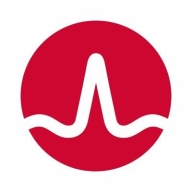

OpenText Application Quality Management and Rally Software compete in the enterprise software solutions market, particularly focusing on application lifecycle management and project management. Rally Software appears to have an edge for agile methodologies and adaptability due to its flexible licensing model and broader project management tool support.
Features: OpenText Application Quality Management focuses on traceability and data integrity, offering a robust system customized for complex requirements suited for larger organizations. Meanwhile, Rally Software is versatile, supporting project management tools and offering adaptable licensing models for different organizational sizes.
Room for Improvement: OpenText could reduce licensing costs, simplify its user interface, and expand browser support to enhance usability. Rally Software may enhance its reporting functionalities and integration capabilities with other tools to provide a more seamless experience.
Ease of Deployment and Customer Service: OpenText commonly uses on-premises or private cloud deployments, making it suitable for large-scale environments. Although their customer service is helpful, response times could improve. Rally Software is more flexible with hybrid and public cloud options. Its support team is known for responsiveness, which is beneficial for agile teams needing immediate assistance.
Pricing and ROI: OpenText, often seen as an expensive solution needing negotiation, might not be ideal for smaller businesses, though many report substantial ROI due to its rich features. Rally Software, though also considered pricey, offers competitive plans for large-scale agile strategies, promising ROI by enhancing project management efficiency.
It acts as an enabler for effective test and program management.
The ROI is visible, as that's why we are investing in these tools and running our projects successfully through them, despite a few challenges such as role-based access being somewhat difficult.
Technical support has been excellent.
Quality is always high yet not perfect.
I am mostly happy with the technical support from OpenText ALM _ Quality Center.
OpenText ALM Quality Center is definitely scalable.
From a stability standpoint, OpenText ALM Quality Center has been pretty good.
Improvements are needed so that the system can continue running without creating a new run.
I see a stable tool that remains relevant in the market.
HPLM has one of the best UIs compared to other test management tools, allowing for efficient navigation between test pieces, test folders, test suites, and test execution.
One area for improvement might be the rigidity in role and access configurations, which require many process changes to fit the tool.
It would be cheaper to use a cloud model with a pay-per-use licensing model.
Rally Software is affordable because our customers also prefer it.
It creates constant visibility into the test process, showing the status, bugs, and automated test results.
The integration with internal applications and CollabNet is made possible through exposed APIs, allowing necessary integrations.
We can create a requirement for stability metrics with the test cases to ensure all requirements are covered.
Rally Software provides real-time dashboards for different kinds of stakeholders and governance, giving clear insights into project progress, team velocity, and potential risks.
| Product | Market Share (%) |
|---|---|
| OpenText Application Quality Management | 5.0% |
| Rally Software | 5.5% |
| Other | 89.5% |

| Company Size | Count |
|---|---|
| Small Business | 39 |
| Midsize Enterprise | 32 |
| Large Enterprise | 162 |
| Company Size | Count |
|---|---|
| Small Business | 13 |
| Midsize Enterprise | 14 |
| Large Enterprise | 110 |
OpenText Application Quality Management offers centralized data management, traceability, and integration capabilities. It aids in handling requirements, test planning, and defect tracking while supporting both manual and automated testing. Challenges exist in deployment and browser compatibility.
Known for its robust reporting and flexibility, OpenText Application Quality Management is tailored for large organizations requiring a comprehensive solution supporting lifecycle coverage and seamless tool integration. Users can consolidate testing processes, manage requirements, and centralize reporting across manual and automated testing. While some face issues with project tracking, outdated interfaces, and limited browser compatibility beyond Internet Explorer, it remains widely used for regression and performance testing. Integration with tools like JIRA and support for tools such as UFT and ALM PC underscore its utility.
What are the key features of OpenText Application Quality Management?In industries such as finance and healthcare, OpenText Application Quality Management is implemented to ensure rigorous testing standards. It supports test case creation and execution, defect tracking, and requirements management. Integration with JIRA and performance testing tools make it suitable for organizations needing synchronized testing environments.
With Rally Software, you can plan, prioritize, manage, track, and continuously improve your work so that you can deliver the value that your customers need with speed, quality, and efficiency. Our enterprise-class Application Lifecycle Management (ALM) SaaS platform provides visibility into progress, roadblocks, and dependencies across multiple teams, projects, and programs. This allows you to align to your strategic goals and create better business results, and to do it all in a single system of record.
We monitor all Application Lifecycle Management (ALM) Suites reviews to prevent fraudulent reviews and keep review quality high. We do not post reviews by company employees or direct competitors. We validate each review for authenticity via cross-reference with LinkedIn, and personal follow-up with the reviewer when necessary.